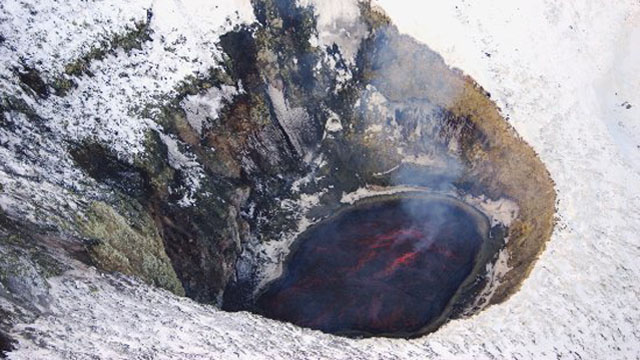Where Should You Flee to During a Zombie Outbreak?

Inspired by the fictional oral history of the zombie outbreak, World War Z, researchers from Cornell University have calculated what most zombie enthusiasts already know: if you want to survive the outbreak, go where people aren’t — preferably the hills… or Canada.
Kelsey D. Atherton from Popular Science writes that the team will make their presentation for their apocalyptic scenario paper at the March meeting of the Academy of Physical Sciences. The researchers’ model was done with a population of 300 million people in mind, creating a dynamic statistical simulation for the possible outcomes of a zombie outbreak in the United States.
Obviously, dense populations, like New York City and San Francisco, are the worst-off. The outbreak would spread quickly. But rural areas, preferably ones that are high up in the mountains could remain unaffected by the outbreak for a time — save for shipping routes being disrupted. The researchers said that Montana, Idaho, or the Dakotas would be prime candidates as potential safe havens from the outbreak.
The lead author, Alexander Alemi, elaborated on the fictional scenario in a press release:
“Given the dynamics of the disease, once the zombies invade more sparsely populated areas, the whole outbreak slows down — there are fewer humans to bite, so you start creating zombies at a slower rate. I’d love to see a fictional account where most of New York City falls in a day, but upstate New York has a month or so to prepare.”
They computed their statistical map the same way one might model a chemical reaction between two elements with room for some cases of randomness.
“Each possible interaction — zombie bites human, human kills zombie, zombie moves, etc. — is treated like a radioactive decay, with a half-life that depends on some parameters, and we tried to simulate the times it would take for all of these different interactions to fire, where complications arise because when one thing happens it can affect the rates at which all of the other things happen.”
After it’s all said and done, though, the zombie outbreak scenario is just a modern tale of what could happen during any kind of epidemic. Though, now that you know where to go, it may change the outcome.
As for why the researchers decided to study this particular scenario, Alemi said:
“A lot of modern research can be off-putting for people because the techniques are complicated and the systems or models studied lack a strong connection to everyday experiences. Not that zombies are an everyday occurrence, but most people can wrap their braains around them.”
Read more at Popular Science.
Photo Credit: Luke Detwiler/Flickr





